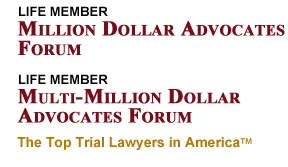Texas Judge Sues Lawyer for Defamation
Gregory D. Jordan, an experienced Austin business litigation attorney, Austin business attorney and Austin defamation lawyer, offers commentary on an unusual suit.
Judge Carlos Cortez, an elected judge for the 44th State Civil District of Dallas County, Texas, filed suit in Dallas’s 298th District Court on Nov. 1 against Dallas attorney Coyt Randal “Randy” Johnston alleging defamation and extortion. Cortez alleges that Johnston defamed him when he e-mailed a copy of a concocted complaint before the State Commission on Judicial Conduct to members of a Dallas trial advocacy group, the American Board of Trial Advocates (ABOTA).
The suit alleges that three other state district judges who are fellow state district judges of Cortez – Judge Craig Smith of 192nd District Court, Judge Lorraine Raggio of 162nd District Court, and Judge Martin Lowy of 101st District Court – started rumors with Johnston against Cortez to create a political opponent against him had leaked damaging allegations against him in attempt to unseat him during the elections. Those rumors, which later allegedly included Cortez hiring prostitutes and using drugs, formed the basis of Johnston’s judicial complaint.
“This is a lawsuit about what we as a profession are going to tolerate and whether it is acceptable for a lawyer and three judges to meet, create rumors about a fellow judge, file a complaint with the judicial conduct commission about the rumors they themselves created then intentionally and knowingly publish that into the public domain to generate a political opponent,” said Cortez, a Dallas County civil court judge, in an interview.
Austin business litigation attorney, Gregory D. Jordan, notes “This is a highly unusual case. Proceedings before the State Commission on Judicial Conduct are often cloaked in secrecy. Now much may be revealed in public. This will be an interesting case to follow.”
“Just as with much of the litigation we handle, you have two determined and apparently motivated litigants in this dispute. In cases such as these, it is crucial to have a top lawyer on your side. Obviously, judges recognize this need,” said Austin business attorney Jordan.
“If the State Bar of Texas and the Judicial Conduct Commission do not remove these people from our profession then we indeed are no better than the lawyer jokes they tell about our profession,” Cortez said.
To learn more visit, https://www.theaustintriallawyer.com.



